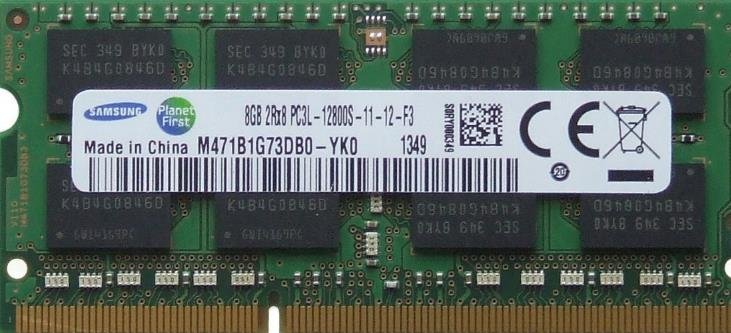Samsung Electronics, a world leader in advanced memory technology, has announced the development of the industry’s first Low Power Compression Attached Memory Module (LPCAMM) form factor, which is expected to transform the DRAM market for PCs, laptops, and possibly even data centers. Samsung’s LPCAMM has completed system verification through Intel’s platform and is slated for commercialization in 2024.
What is LPCAMM and why is it important?
LPCAMM is a new type of DRAM module that combines the advantages of LPDDR and So-DIMM, two conventional form factors used in PCs and laptops. LPDDR is compact and power-efficient, but it is permanently attached to the motherboard, making it difficult to replace or upgrade. So-DIMM can be easily attached or detached, but it has limitations in performance and physical features.
LPCAMM overcomes these shortcomings by offering a detachable module that occupies up to 60% less space on the motherboard than So-DIMM. This allows more efficient use of devices’ internal space while also improving performance by up to 50% and power efficiency by up to 70%. LPCAMM also supports compression technology, which reduces the data transfer bandwidth and power consumption.

LPCAMM is expected to lead the next-generation module market for PCs and laptops, as it enables more flexible and efficient device design and operation. LPCAMM could also potentially extend to data centers and servers, as it offers significant advantages in terms of total cost of operation (TCO) efficiency.
How did Samsung develop LPCAMM?
Samsung has been leading the innovation in memory technology for decades, with its continuous research and development efforts. Samsung has pioneered various breakthroughs in DRAM, such as DDR, GDDR, HBM, LPDDR, and CXL. Samsung has also collaborated with industry partners to establish and promote new standards and solutions for memory products.
Samsung’s LPCAMM is the result of its extensive expertise and experience in memory technology, as well as its close cooperation with Intel, a global leader in computing platforms. Samsung and Intel have jointly verified the system compatibility and performance of LPCAMM through Intel’s platform. Samsung has also received positive feedback from other PC and laptop manufacturers who have expressed interest in adopting LPCAMM for their future products.
Samsung plans to commercialize LPCAMM in 2024, after completing the standardization process with JEDEC, an organization that sets standards for semiconductor engineering. Samsung expects that LPCAMM will become a mainstream form factor for DRAM modules in the near future.
What are the benefits of LPCAMM for users?
LPCAMM will offer various benefits for users who use PCs, laptops, or data center devices. Some of these benefits are:
- Higher performance: LPCAMM will enable faster data processing and multitasking by increasing the memory bandwidth and speed. LPCAMM will also support compression technology, which will reduce the data transfer latency and improve the system responsiveness.
- Lower power consumption: LPCAMM will reduce the power consumption of memory modules by up to 70%, compared to So-DIMM. This will extend the battery life of laptops and mobile devices, as well as lower the energy costs of data centers and servers.
- More flexibility: LPCAMM will allow users to easily replace or upgrade their memory modules without having to change the entire motherboard. This will enhance the repairability and scalability of devices, as well as reduce the electronic waste.
- More space: LPCAMM will occupy up to 60% less space on the motherboard than So-DIMM. This will free up more space for other components or features, such as larger batteries, cooling systems, or displays.
LPCAMM is a game-changing innovation that will usher in a new era of memory modules for future devices. Samsung Electronics’ Industry-First LPCAMM Ushers in Future of Memory Modules is a news article that covers this topic in detail.
